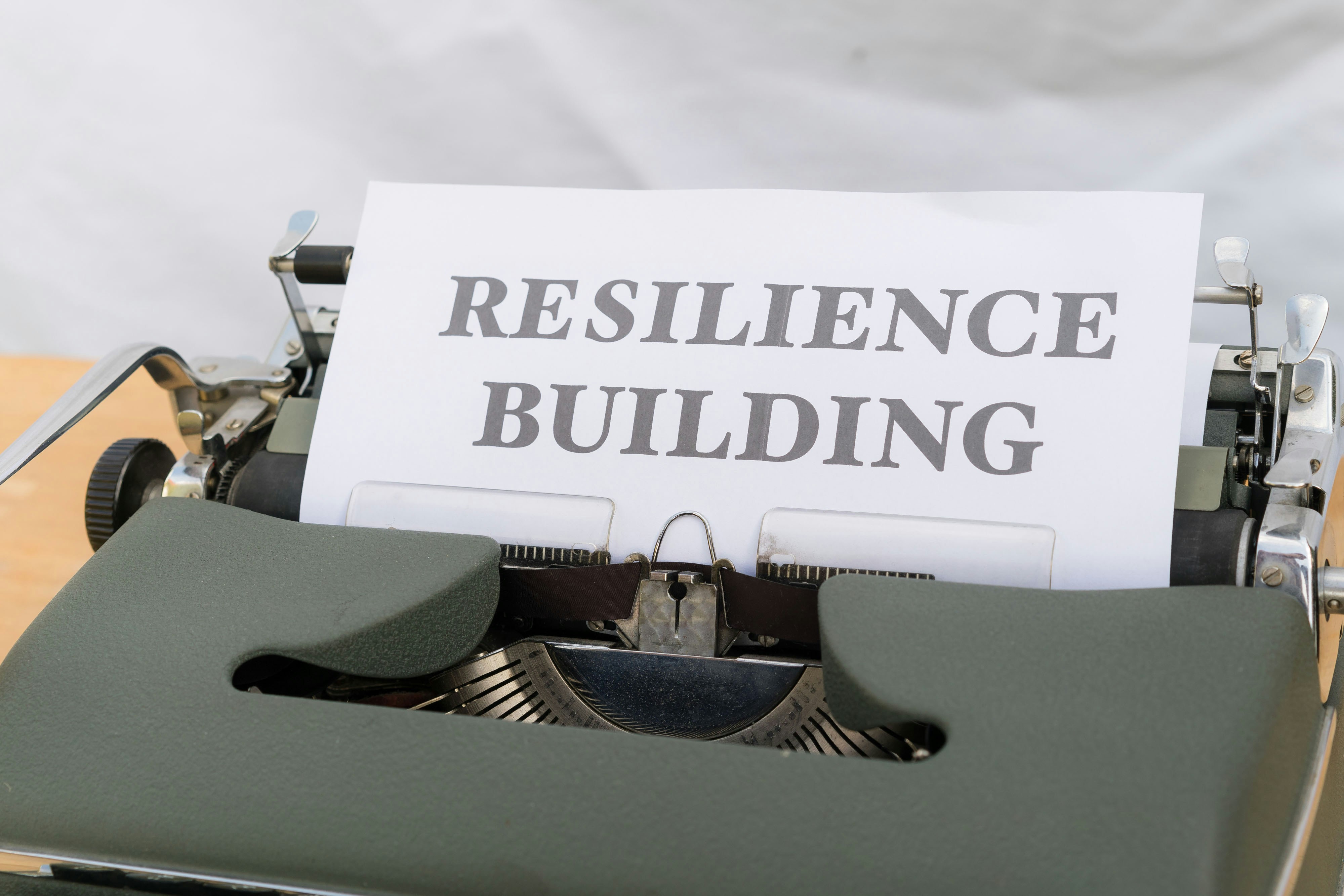Financial Resilience: Master Adaptive Spending Strategies Today
In times of crisis, whether economic downturns, natural disasters, or personal hardships, many people find themselves grappling with financial uncertainty. The good news? There exists a beacon of hope—of flexibility and strength—known as financial resilience. This concept revolves around adopting innovative spending strategies that enable you to adapt to unforeseen circumstances, ensuring not just survival but the potential for growth. In this guide, we will explore how to build that resilience through adaptive budgeting, investment reallocation, and a mindset poised for opportunities—even in hard times.
Understanding Financial Resilience
Financial resilience is not solely about having a cushion—it's the ability to adapt and thrive despite circumstances that rock your financial world. Think of it as a financial dance where you learn to move with the rhythm of a turbulent environment rather than stiffly resisting it. According to a report by the Harvard Business Review, companies and individuals with strong financial agility are better positioned to weather storms than those who rely solely on static plans.
The Importance of Adaptive Spending
Adaptive spending strategies are crucial for retaining financial flexibility during crises. These strategies involve regularly evaluating your spending patterns to align with your current reality, and not just sticking to a rigid budget created two years ago. By making conscious adjustments and rethinking financial priorities, you can preserve your resources while maximizing your ability to take advantage of unforeseen opportunities.
Creating an Adaptive Budget
Evaluate Your Financial Reality
Before diving into an adaptive budget, it's essential to assess your financial health. This includes reviewing income sources, expenses, debts, and savings. Use budgeting tools or apps, such as mint.com, to visualize where your money flows. These platforms can help you jog your memory about recurring expenses you may have overlooked, ultimately guiding your adaptive budgeting.
Set Flexible Financial Goals
Setting goals is crucial, but during a crisis, they need to be flexible. Craft “what-if” scenarios for your goals. What if your income decreases? How would you adjust your savings habits? Establish a primary goal with secondary goals as fallbacks to provide a safety net, ensuring you can keep moving forward even when things get tough.
Consider this: rather than aiming for a rigid savings goal of $1,000, a more adaptive approach might be to aim for a percentage of your income—say 10%—or even a fixed dollar amount that adjusts based on your situation. This adaptability empowers you to maintain the intent of saving while accommodating life's variables.
Trim Unnecessary Expenses
Review your spending habits and identify areas where you can cut back. It might be challenging to part ways with subscriptions or non-essential expenditures, but these cuts can drastically increase your financial flexibility. Focus on mindful spending—prioritize the expenses that offer significant value or joy in your life. For a deeper understanding, check out our post on mindful spending.
Reimagining Investment Allocations
Reevaluating Your Investment Portfolio
Investments are often the lifeblood of long-term financial growth, but during crises, reallocating your investment strategy can be vital. Start with a thorough audit of your investment portfolio. Are there high-risk assets that you should temporarily reduce in favor of safer investments? This audit can be likened to an annual physical—necessary for maintaining overall health.
If you're hesitant about reallocating, remember the sage advice from The Intelligent Investor by Benjamin Graham: "The stock market is filled with individuals who know the price of everything but the value of nothing." This illustrates the importance of understanding that not all investments are equally weatherproof.
Take Advantage of Downturns
One fundamental principle of investing is to buy low when the market is down. This is counterintuitive to many, who may panic during downturns. A sound strategy involves having a plan for acquiring undervalued stocks or funds when the market experiences volatility, capitalizing on opportunities that arise from crisis situations.
Case Study Example: During the 2008 financial crisis, investor Warren Buffett famously purchased distressed assets at bargain prices, resulting in significant wealth accumulation as markets recovered. By adopting a proactive, opportunistic approach, you too can position yourself effectively for long-term financial growth.
Finding Wealth Generation Opportunities
Rethink Passive Income Sources
Crisis situations often inspire innovation. What side hustles can you develop to create additional income during rocky times? Embrace your passions—consider monetizing hobbies or skills as a source of passive income. Whether it's starting a blog, launching an Etsy shop, or diving into freelance work, these pursuits not only buffer finances but serve as fulfilling endeavors.
For a robust exploration of transforming hobbies into income, check out our article on transforming hobbies into income.
Invest in Education and Skills
In challenging economic climates, investing in education may seem counterintuitive. However, acquiring new skills typically enhances your income potential long-term. Platforms such as Coursera or MasterClass provide accessible learning opportunities that allow you to pivot toward a more lucrative career path or a robust side hustle.
Community Investments: A Unique Approach
Investing in your community can yield remarkable financial and social returns. By supporting local small businesses or engaging in community-enhancing projects, you can reap the benefits of local economic growth while fostering a sense of connection. Look for opportunities to invest either through crowdfunding platforms or by actively engaging in local initiatives. Our article on investing in your community sheds light on possible ventures.
The Role of Mental Adaptability
Building a Resilient Mindset
Mental adaptability is as vital as financial flexibility. The capacity to stay calm, think critically, and innovate during a crisis can shape your financial trajectory. Practice mindfulness techniques such as journaling or meditation to enhance your emotional intelligence. Recognizing your triggers allows you to refrain from impulsive financial decisions.
Emotional Wealth: Investing in Mental Health
Your mental wellness directly impacts financial decision-making. Investing in your mental health could mean seeking therapy or developing stress-management techniques. The healthier you are mentally, the clearer your financial choices can become. For insights on this concept, consult our article on investing in emotional wealth.
The Power of Networking
Leveraging Relationships for Financial Resilience
Networks can be invaluable during economic crises. Building relationships with like-minded individuals enables the exchange of resources, insights, and potential investment opportunities. Attend local workshops, webinars, and networking events. Helping others within your network can ultimately lead to opportunities that service your financial goals.
Final Thoughts: Empower Yourself Financially
Building financial resilience through innovative spending strategies requires a comprehensive and flexible approach. As you navigate through economic uncertainties, remember that financial health isn't solely defined by savings but also by adaptability and mindset. Leverage tools for budgeting and investment assessment, and don’t hesitate to reassess your strategies as the landscape shifts.
Incorporate supportive communities and focus on your personal growth, both emotionally and financially. As you navigate life’s unpredictable waters, your resilience will not just help you survive but thrive—creating a legacy of empowerment for yourself and others. Learn more about empowering yourself financially through various channels, and never hesitate to reach out for guidance.
For further information on enhancing your financial literacy and discovering more adaptable strategies, explore our posts on financial storytelling and the currency of time.











